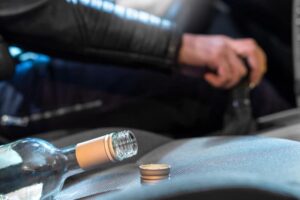 If you or your spouse are dealing with a substance addiction problem, informing your children is a difficult but necessary task. The explanation often falls to the non-addicted parent, but whether it’s handled by one or both of you, it’s important to plan your discussion carefully.
If you or your spouse are dealing with a substance addiction problem, informing your children is a difficult but necessary task. The explanation often falls to the non-addicted parent, but whether it’s handled by one or both of you, it’s important to plan your discussion carefully.
Be Honest
No matter how well-intentioned the idea, attempting to shield them from the truth does more harm than good. According to Gabor Mate, an addiction specialist and author, your job is to “help the children endure pain, not protect them from it.” Discussion gives children a chance to vent their feelings, defusing any negative emotions.
Share the Seven Cs
It’s hard enough for adults to understand the nature of addiction. For children, it’s easy for them to internalize the problem and blame themselves or their behavior for causing a parent’s problem.
The National Association for Children of Alcoholics (NACoA) has created an affirmation that provides a simple and effective way for kids to be proactive about maintaining their confidence and self-esteem. Here’s what they recommend for kids to take to heart:
- “I didn’t cause it.
- I can’t cure it.
- I can’t control it.
- I can take care of myself by
- Communicating my feelings,
- Making healthy choices, and
- Celebrating me.”
Provide Outside Support
There’s no question that substance addiction affects all members of the family. Just as you or your spouse need help for treatment, your children will also benefit from having additional sources of support.
They may actually feel more comfortable discussing their concerns with a teacher, counselor or other sympathetic, nonjudgmental figure. Groups such as NACoA, Al-Anon and Alateen can be helpful in showing kids that they’re not alone.
The sooner you explain addiction to your kids, the sooner all of you will be able to begin the process of healing. Our addiction treatment programs at Transitions Recovery in Miami include both group and individual resources for families. Call 800-626-1980 to learn more about how we can help all of you recover.

















